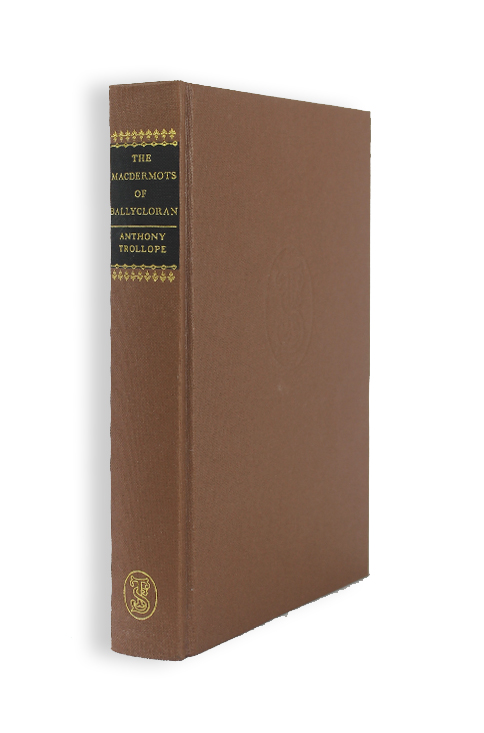Macdermots of Ballycloran, The
£30.00
Available to members only
Introduction by Owen Dudley Edwards
448 pages
London, Newby, 1847. 3v.
Out of stock
Every Trollope reader today will of course want at some time or another to explore Anthony’s first novel. It was not always so. When, in July 1845, he returned to England for his first holiday as a married man, he had the manuscript with him. His family already a family of professional writers – were taken aback, not to say horrified at his presumption. His mother passed the manuscript, unread, to a London publisher. ‘She did not give me credit for the cleverness necessary for such work’ he said: and their relations never really recovered from this wounding incident. But Fanny Trollope had chosen to ignore the debut of a very obviously talented author.
The idea came to him on a walk with a friend in County Leitrim when they came across the modern ruins of a country house – ‘It was one of the most melancholy spots I ever visited’. While still within the ruined shell, he invented a plot (‘I do not know that I ever again made one so good’). He gives us a striking but tragic heroine in Euphemia MacDermot: a vulnerable rustic beauty, her family consists of a father rapidly approaching dotage, and an unstable brother, Thady, who acts as agent and rent collector of their increasingly unprofitable land. An ardent romantic, Fanny is an obvious prey. And she is duly seduced by Captain Myles Ussher, a British policeman.As Ussher is about to take her away with him to Dublin as his mistress, they are surprised by the hot blooded and suspicious Thady, who kills the Captain, goes into hiding, gives himself up, and is hanged.
During his trial, Fanny, secretly pregnant, dies in a back room of the Assize Court. Old MacDermot lapses totally into senility: the family of Ballycloran, so vividly brought to life, are thus ruthlessly extinguished by the hand that created them. However, although sometimes melodramatic, there is much sharp observation of the Ireland which, normally quiet under English control, was already nurturing all the ingredients of the Troubles: a point already clear to the sympathetic priest, Father John. From its haunted start to its dramatic climax, there are elements of genuine tragedy in this interesting novel.
